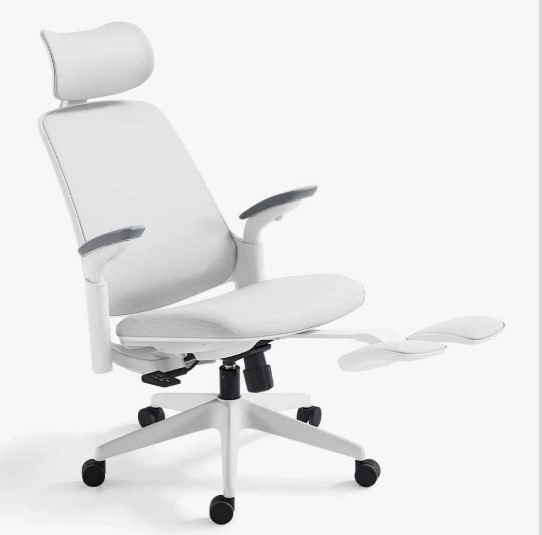Jaw surgery, also known as orthognathic surgery or corrective jaw surgery, is usually carried out to treat skeletal discrepancies of the facial bones that are causing functional and/or aesthetic problems. These problems could include breathing difficulties, excessive drooling, pain in the temporomandibular joints (TMJs), dental malocclusion (improper tooth alignment), an unbalanced facial profile, and others. We explain some of the basics involved in jaw surgery on this page: https://tesclinic.com/services/surgical-correction-of-jaw-deformities-and-facial-skeleton/.
Jaw surgery in Singapore is usually recommended for patients;
- Who have skeletal open bites where there is inadequate space for their teeth
- With deep overbites where a person’s front teeth cover too much of their lower lip or tongue when they bite down
- Who have underbites where a patient’s lower front teeth bite inside their upper front teeth
- Cross-bites where the upper front teeth bite inside the lower front teeth
- Gummy smiles where over-exposure of the gum tissue occurs, and incorrect jaw positions.
Patients who are deemed suitable for these corrective surgeries include those with normal facial appearance with no underlying medical problems or sleep-disordered breathing (sleep apnea), mild skeletal discrepancies whose condition does not worsen with time, good dental hygiene, and stable jaws that lack significant TMJ issues.
How do I know if I Need Jaw Surgery?
The best way to determine eligibility for corrective jaw surgery in Singapore is by consulting an oral and maxillofacial (OMS) specialist. The dentist will assess the condition of your teeth, gums, and jaws, take X-rays of your mouth, face, and neck, carry out a thorough examination to see how much your upper and lower jaws overlap each other when you close your mouth fully (intercanine width) as well as whether there are any irregularities in the way your teeth meet when biting down.
They will also test the range of motion in all joints of your mouth; look at the pattern or ‘arch’ of your bite; evaluate the condition of the roof of your mouth and take note of the presence and severity of any sleep apnea symptoms. A physical evaluation will also help to determine if you have a common symptom-complex called TMJ disorder – where pain, clicking, popping, and/or grating sensations within the jaw joint(s) occur. Your specialist will then be able to provide you with an expert opinion on whether corrective jaw surgery is necessary or not, as well as what type of corrective surgery would best address your needs.
What are the Risks and Benefits of Jaw Surgery in Singapore?
The most common side effects associated with orthognathic (jaw) surgery include discomfort; swelling; dry or sore eyes; bruising at the corners of your mouth and nose; double vision; numbness of your lips, gums, and tongue; problems closing your mouth fully or speaking clearly. Nerve damage is also possible, which could lead to muscle spasms in the jaw joint(s), although this risk is extremely low.
Jaw surgery may also cause scarring around the site of the incision, along with asymmetry in your facial appearance during recovery, so it’s important for you to discuss all these issues with your dentist prior to signing up for corrective jaw surgery. Remember that jaw surgery would only be recommended for you if you are a good candidate for the procedure. With that in mind, you may only qualify for jaw surgery in Singapore if;
- Your facial features are unbalanced: Perfect examples include if your lower jaw is too small or too recessed and/or you have an overbite, underbite, and/or cross-bite and experience recurring headaches which could be resulting from the malocclusion of your teeth
- Your jaw joint(s) are painful or tender to touch due to TMJ disorder: Symptoms can include clicking, popping, or grating sensations within the affected joint(s), pain in your jaw muscles, which could radiate to other parts of your face, and neck, difficulty chewing food properly
- You’re unable to open your mouth fully: This may be due either to tightness in certain groups of facial muscles or creases on the corners of your mouth that prevent you from opening your mouth as much as possible
- You’re having excessive teeth: This could be due to overcrowding (a few teeth missing) or an under-developed upper jaw.
What to Expect during and After Jaw Surgery?
During corrective jaw surgery in Singapore, an incision will be made just below the hairline behind either ear, where the surgeon will extract a section of bone that forms part of either or both jaws. Once enough bone has been removed (osteotomy), the surgeon will use orthodontic braces to gradually reposition the jaw to a more balanced and stable position. Surgery time depends on how complicated your case is, but corrective jaw surgery usually takes 4-6 hours to complete.
After surgery, you’ll be required to eat soft foods (jello, applesauce) for about two weeks while healing occurs, moving to softer solids like mashed potatoes and eventually eating regular food after 2-3 months. You may also require temporary or permanent plates inside your mouth, which are used to support your jaws as they realign; the bone grafts mentioned earlier are typically taken from either your hip or leg bones during surgery so that they can provide additional structural support for your newly corrected jaw.
A second surgery, if required, may be scheduled several days after your corrective jaw surgery to remove any plates that have been inserted into your mouth as well as the sutures used to close up the incision sites. Your orthodontist will then insert false implants, which are used to provide support for dental work such as dentures or crowns (if you’re missing all of your teeth).
Wrapping Up
As you can see, jaw surgery comes with plenty of benefits but also potential risks. However, the question must be asked if risks are worth taking for your overall medical-dental health and well-being?
If you’ve experienced any of the problems mentioned above for a prolonged period of time, it’s probably best for you to consult an OMFS specialist in Singapore so they can provide you with professional advice on whether corrective jaw surgery is necessary or not. Remember that this is just one option available to improve your overall oral wellness; even more, non-surgical treatments such as braces and Invisalign are viable alternatives to undergoing corrective jaw surgery.
Take-Home Message: If you feel that you need corrective jaw surgery, then speak with a specialist at one of our clinics today about whether or not this treatment is right for you. Call us today at +65 6737 0552 / +65 9735 9930 or email us at [email protected] to schedule a consultation.
TES Clinic for Face & Jaw
304 Orchard Road, Lucky Plaza Suites #05-42, Medical Specialists, 238863
+65 9735 9930
https://tesclinic.com/











